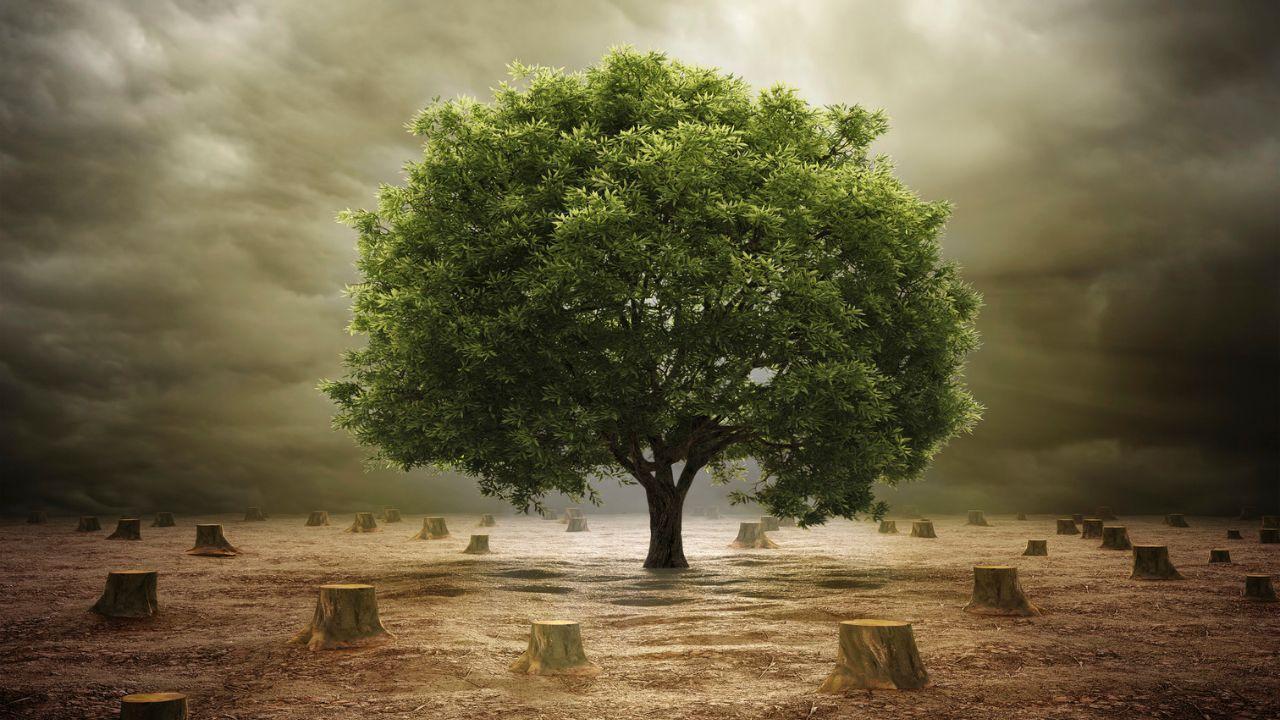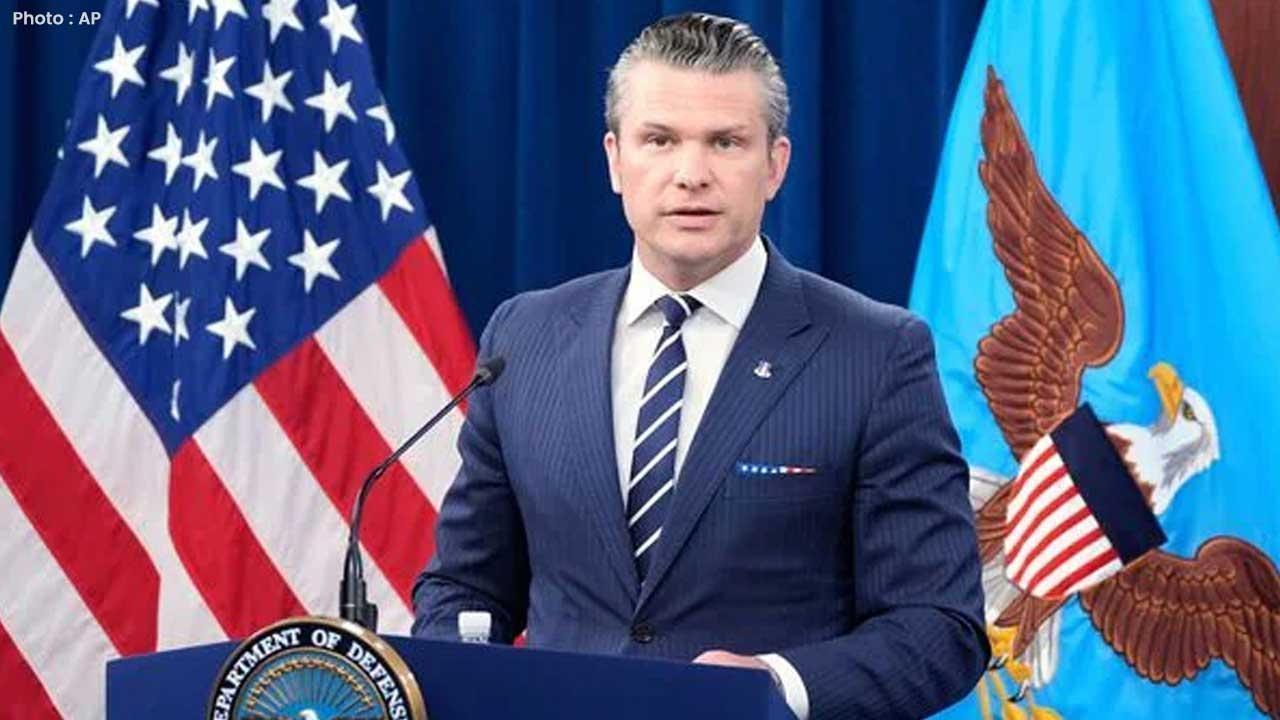
Post by : Vansh
Forests have long been the lungs of our planet, absorbing carbon dioxide and releasing oxygen. But in recent decades, rampant deforestation has threatened this delicate balance. In this article, we delve into how deforestation fuels global warming, the long-term consequences of losing our forests, and what we can do to change the course.
Deforestation is the large-scale removal of trees, often to make way for agriculture, infrastructure, or logging. While forest clearance might serve short-term human needs, the environmental cost is staggering. Forests store vast amounts of carbon in their trees and soil. When they're cut down or burned, this carbon is released back into the atmosphere, accelerating global warming.
Key causes of deforestation include:
Agricultural expansion (especially soy, palm oil, and cattle grazing)
Logging for timber and paper products
Infrastructure development (roads, mining, and urban expansion)
Fire (both natural and human-induced)
The loss of forest cover reduces the Earth's capacity to absorb CO₂, making it a major driver of climate change.
Forests act as carbon sinks—they absorb and store more carbon than they release. When we remove trees, we not only release that stored carbon but also eliminate the natural system that would continue removing carbon from the atmosphere. As a result, greenhouse gas concentrations rise, contributing significantly to global warming.
According to the Intergovernmental Panel on Climate Change (IPCC), deforestation accounts for nearly 10% of global greenhouse gas emissions. This makes it one of the leading contributors to human-induced climate change.
The effects of deforestation extend far beyond carbon emissions. It disrupts ecosystems, drives species to extinction, and impacts indigenous communities who depend on forests for their livelihood and culture.
Moreover, deforestation alters the water cycle. Trees play a critical role in maintaining regional rainfall patterns. Their removal can lead to droughts, desertification, and extreme weather events—all of which are exacerbated by global warming.
In tropical regions like the Amazon and Congo Basin, the loss of forest cover also affects global weather systems. These "carbon bombs" release massive emissions, threatening to push the planet beyond safe climate thresholds.
Preserving and restoring forests is one of the most effective ways to fight climate change. Forest conservation can deliver up to 30% of the emissions reductions needed to meet the goals of the Paris Agreement.
Some solutions include:
Reforestation and afforestation: Planting new trees and restoring degraded forests
Agroforestry: Integrating trees into agricultural systems for sustainable farming
Sustainable logging: Managing forests to reduce environmental damage
Supporting indigenous rights: Empowering local communities to protect their lands
Sustainable practices and global cooperation are essential to reverse the trend of forest destruction.
Every individual has a role to play in combating deforestation and global warming. Here’s how you can make a difference:
Support certified sustainable products (like FSC-certified wood and palm oil)
Reduce paper and meat consumption
Donate to or volunteer with organizations focused on forest preservation
Educate others about the climate-forest connection
Advocate for stronger environmental policies
Even small lifestyle changes, when multiplied across communities, can help slow the rate of forest loss and reduce emissions.
The echoes of the forest are not just poetic—they are a desperate cry for help. As trees fall silently in remote jungles, the effects are felt in rising seas, deadly heatwaves, and shifting climates around the globe. If we fail to act now, we risk pushing our planet into irreversible damage.
But there's hope. By recognizing the role forests play in climate regulation and prioritizing their preservation, we can create a more sustainable and resilient future for generations to come.
This article is for informational purposes only and reflects the current understanding of climate science. Readers are encouraged to stay updated with verified research and policy changes. Published by MiddleEastBulletin for educational and public awareness use.










Pageau's Overtime Goal Propels Islanders to 4-3 Victory Over Golden Knights
In a thrilling overtime finish, Jean-Gabriel Pageau leads the Islanders past the Golden Knights 4-3,

MLB Awards: deGrom and Acuna Jr. Shine as Comeback Players
Jacob deGrom and Ronald Acuna Jr. celebrated MLB Comeback Player Awards, alongside Ohtani and Judge

Portugal Confronts Ireland in Pivotal World Cup Qualifier
Portugal, led by Cristiano Ronaldo, faces Ireland in a vital Group F World Cup qualifier that could

Haaland's Brilliance Leads Norway to 4-1 Victory Against Estonia
Erling Haaland showcases leadership as Norway crushes Estonia 4-1, boosting their World Cup ambition

Hawks Triumph Over Jazz; Suns and Raptors Secure Victories
Hawks' Onyeka Okongwu and Jalen Johnson lead in a thrilling win against Jazz; Suns and Raptors also

Indian Men's Recurve Team Clinches First Asian Gold in Nearly Two Decades
The Indian men's recurve team triumphed over South Korea, securing their first Asian gold in 18 year